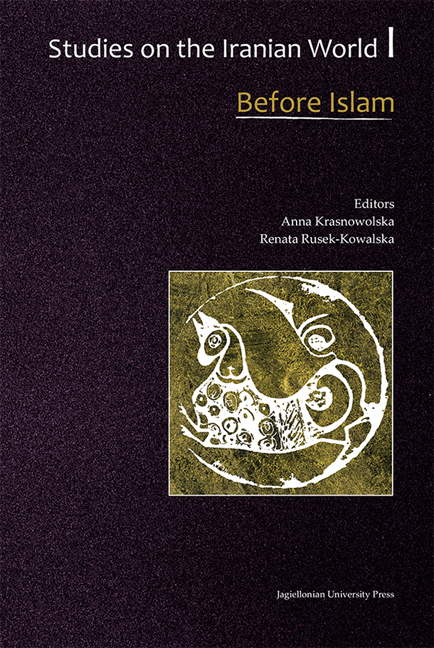Two Snake-Brothers on Their Way – Mani's Scriptures as a Source of Manichaean Central Asian Parables?
from Literature
Published online by Cambridge University Press: 12 January 2018
Summary
SUMMARY
Central Asian Manichaean parables are mostly based on the model of Buddhist tales. But studies on the parable ‘On the Religion and the Ocean’ in the Sogdian ‘Book of Parables’ (āzand-nāme) have uncovered parallels with the Middle Persian text on the ‘Ten Advantages of the Religion’ belonging to a hagiographic sermon as well as with the Coptic Kephalaion 151. Consequently, the core of this story must have been part of the earliest Manichaean tradition. This paper asks whether the ‘Parable of the Two Snakes’ on the very same scroll is also dependent on early Manichaean texts or even on one of Mani's own scriptures. We will see that the snake-parable shares a number of dogmatic features and keywords with the Šābuhragān and related texts. Mani's book was widespread in the East and could have inspired the Manichaean Central Asian storytellers.
As the extant Manichaean literature shows, the Manichaeans liked to dress their dogmatic teachings up in parables and allegories. According to their literary form, two kinds of parables1 can be distinguished: those incorporated into didactic sermons and following the tradition of the Christian Gospel, and parables as a distinct literary category strongly inspired by Buddhist Jātakaand Avadāna-stories, often transmitted as parable collections. Despite this literary classification, the narrative motives of the parables were not restricted to certain areas but wandered around between East and West.
The Manichaean Sogdian ‘Book of Parables’ (āzand-nāme) in Sogdian script is an appropriate example for such intercultural and intertextual relations. According to its colophon, the text was recorded from oral recitation and contained originally about twelve parables of which only two and the end of a third one are extant. One of the fully preserved parables is that ‘On the Religion and the Ocean,’ an adaptation of the Mahāparinirvāṇasūtra and similar Buddhist texts with an allegory of the world ocean. Recent studies6 have clearly demonstrated parallels with the Middle Persian text on the ‘Ten Advantages of Mani's Religion’ as well as with the Coptic Kephalaion 151. Consequently, the core of this story must have been part of the earliest Manichaean tradition.
This raises the question whether the other parables in the very same book might also depend on early Manichaean texts.
- Type
- Chapter
- Information
- Studies on the Iranian World: Before IslamMedieval and Modern, pp. 91 - 104Publisher: Jagiellonian University PressPrint publication year: 2015



